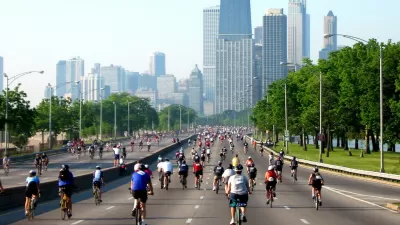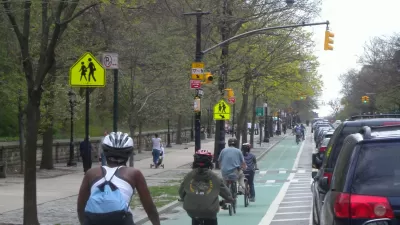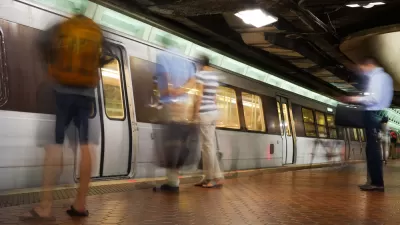The CityLab team has created a new metric to measure the U.S. cities where people are most likely to be car free.

Richard Florida and Charlotta Mellander created a new Metro Car-Free Index that measures the U.S. cities where people go car free in the largest numbers.
According to Florida, who writes to promote the index on CityLab, the index measures:
- The share of households that don’t have access to their own vehicle.
- The share of commuters who take transit to work.
- The share of commuters who bike to work.
- The share of commuters who walk to work.
Florida applies the index as an indicator of where it's easiest to go car free, listed by metro size. The duo's analysis also included a basic correlation analysis to identify the key characteristics associated with car-free metros. "The popularity of living without a car is only weakly related to population and density (with correlations of around .2)," according to Florida.
"Going car-free is much more closely related to America’s economic and political divides," adds Florida, so demographic factors like educational attainment, political affiliation. Florida concludes by noting another key factor in determining a car-free lifestyle: "Ironically, despite the expense of owning a car, going carless in America often requires having money. It helps if you can afford living close to where you work or near good transit, or in a walkable neighborhood with most of life’s necessities close by."
FULL STORY: The Best and Worst U.S. Places to Live Car-Free

Alabama: Trump Terminates Settlements for Black Communities Harmed By Raw Sewage
Trump deemed the landmark civil rights agreement “illegal DEI and environmental justice policy.”

Study: Maui’s Plan to Convert Vacation Rentals to Long-Term Housing Could Cause Nearly $1 Billion Economic Loss
The plan would reduce visitor accommodation by 25% resulting in 1,900 jobs lost.

Planetizen Federal Action Tracker
A weekly monitor of how Trump’s orders and actions are impacting planners and planning in America.

Waymo Gets Permission to Map SF’s Market Street
If allowed to operate on the traffic-restricted street, Waymo’s autonomous taxis would have a leg up over ride-hailing competitors — and counter the city’s efforts to grow bike and pedestrian on the thoroughfare.

Parklet Symposium Highlights the Success of Shared Spaces
Parklets got a boost during the Covid-19 pandemic, when the concept was translated to outdoor dining programs that offered restaurants a lifeline during the shutdown.

Federal Homelessness Agency Places Entire Staff on Leave
The U.S. Interagency Council on Homelessness is the only federal agency dedicated to preventing and ending homelessness.
Urban Design for Planners 1: Software Tools
This six-course series explores essential urban design concepts using open source software and equips planners with the tools they need to participate fully in the urban design process.
Planning for Universal Design
Learn the tools for implementing Universal Design in planning regulations.
Caltrans
Smith Gee Studio
Institute for Housing and Urban Development Studies (IHS)
City of Grandview
Harvard GSD Executive Education
Toledo-Lucas County Plan Commissions
Salt Lake City
NYU Wagner Graduate School of Public Service





























